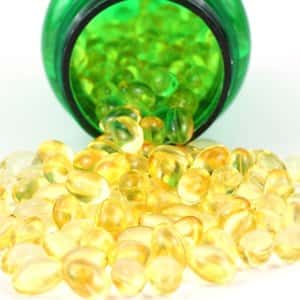
Vitamin D, once dubbed “the sunshine vitamin” because sun-exposed skin makes the compound, has been the darling of nutritional research over the past decade or so. It has been shown to be essential for many more biological functions that simply keeping bones strong.
Strong healthy bones were once thought to be the main benefit of vitamin D because it was discovered that a deficiency of this critical nutrient caused rickets and increased the chance of developing osteoporosis, in which the bones become brittle and fragile.
Low Levels of Vitamin D Cause Havoc:
Low levels of vitamin D in the body have been linked to numerous health problems, from cognitive decline and macular degeneration to diabetes and breast cancer. Unfortunately, it is not clear whether vitamin D supplements can reverse these risks.
Why Supplements Might Not Help:
Perhaps part of the problem is that there are variations in the type of vitamin D used in the supplement (vitamin D2 vs vitamin D3). Many of the high-dose vitamin D supplements that doctors prescribe use the less active vitamin D2.
Another difficulty may be how the supplement is taken. Taking it in the morning with a low-fat breakfast of cereal, skim milk and coffee might not be optimal for absorption. Instead, it will be absorbed better if taken with a high-fat meal, as we suggest to this reader:
Q. My cousin has been prescribed 50,000 units of Vitamin D once weekly. She also takes 2,000 units daily as her doctor recommended.
Even with this big dose, her vitamin D levels are not coming up. What prevents absorption of vitamin D?
Variable Response Is a Mystery:
A. It is not entirely clear why some people achieve normal levels of vitamin D after taking supplements while others, like your cousin, are unsuccessful.
One potential factor may be when the pill is taken. If vitamin D is swallowed right after a fatty meal, absorption is enhanced by nearly one third (Journal of the Academy of Nutrition and Dietetics, Feb., 2015).
To help you and your cousin better understand the critical importance of this nutrient, we are sending you our Guide to Vitamin D Deficiency. It will help you interpret lab results and learn about the dangers of low levels of vitamin D.

